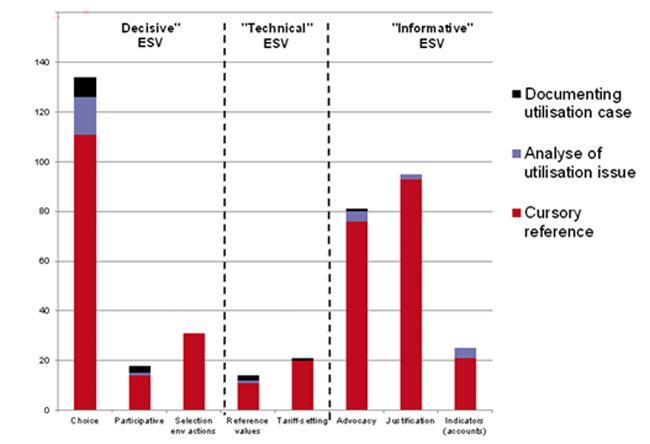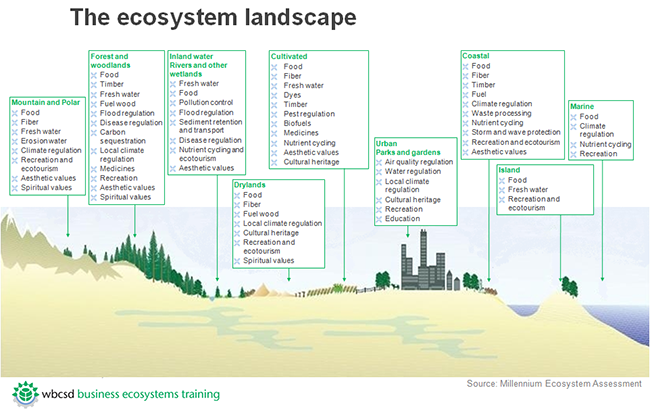1.3.5 Limitations

Ecosystem services assessment has inspired a large amount of economic literature drawing upon Costanza et al. [1997 ], with the aim of building reliable valuation methods. At a rather global scale, the focus on monetary valuation has contributed to attract political support for ecosystem conservation and favoured initiatives such as TEEB [Gómez-Baggethun et al., 2010
], with the aim of building reliable valuation methods. At a rather global scale, the focus on monetary valuation has contributed to attract political support for ecosystem conservation and favoured initiatives such as TEEB [Gómez-Baggethun et al., 2010 ].
].
The validity of ecosystem services valuation at global or local scales remains a controversial issue.
Multi-scale, multi-criteria and multidimensional assessments as recommended by MEA and TEEB are very rare. The focus on monetary valuation has raised criticisms related to the excessive use of the benefit transfer methods or the spreading of numbers without contextual elements.
These limits of the economic valuation of ecosystem services are reflected in the academic literature: examples of effective use of ecosystem services economic valuation in support of decision-making represent a very low share of the work.

Figure: Use of ecosystem services economic valuation as treated in the literature [Laurans et al., 2013 ]
]
In addition to these well-known pitfalls of ecosystem services economic valuation as regards its effective use in support of ecosystem management, ecosystem services assessments have mostly concerned terrestrial ecosystem and have not been so much developed in the marine field.

Figure: Ecosystem services as presented in WBCSD (Business solutions for a sustainable world) training course
New research is thus needed, firstly in order to properly identify and characterize marine ecosystem services and secondly in order to provide ecosystem services assessment frameworks which should be efficient and useful for designing future marine policies, in particular in the prospect of the European call for an ecosystem-based approach for marine integrated policies which appears in the Marine Strategy Framework Directive.

